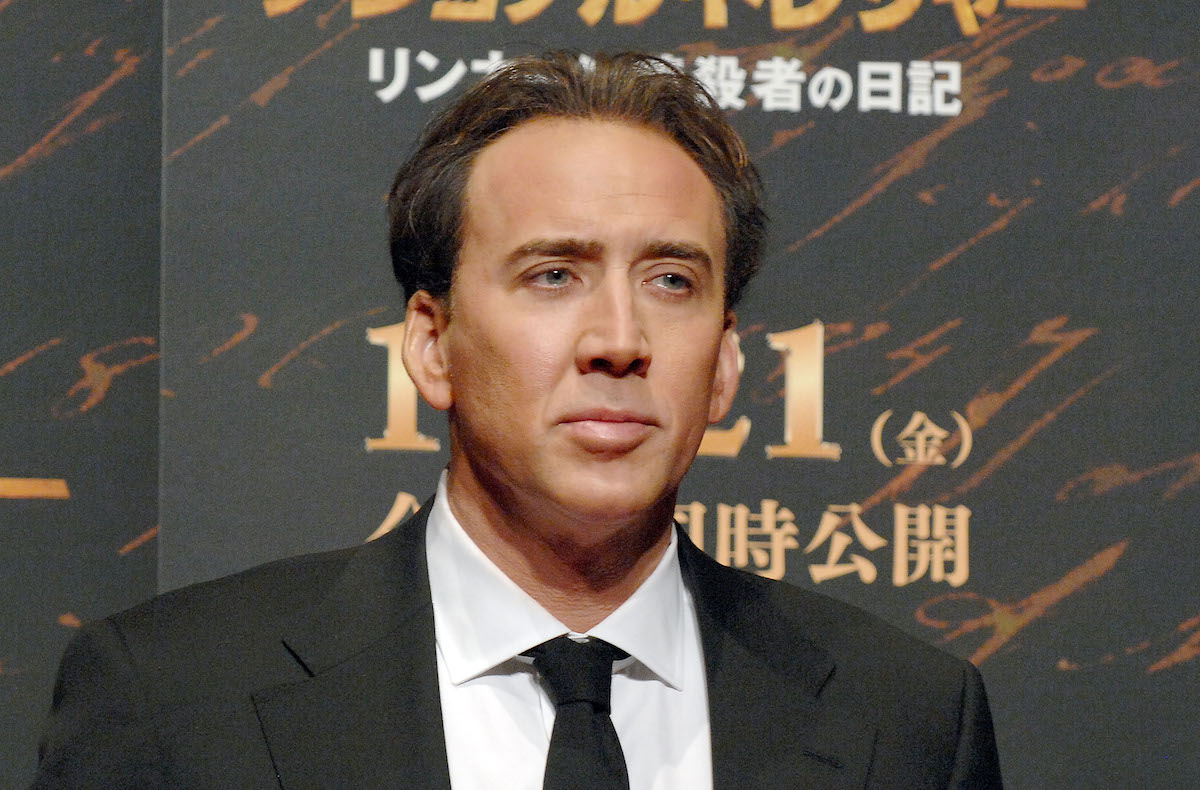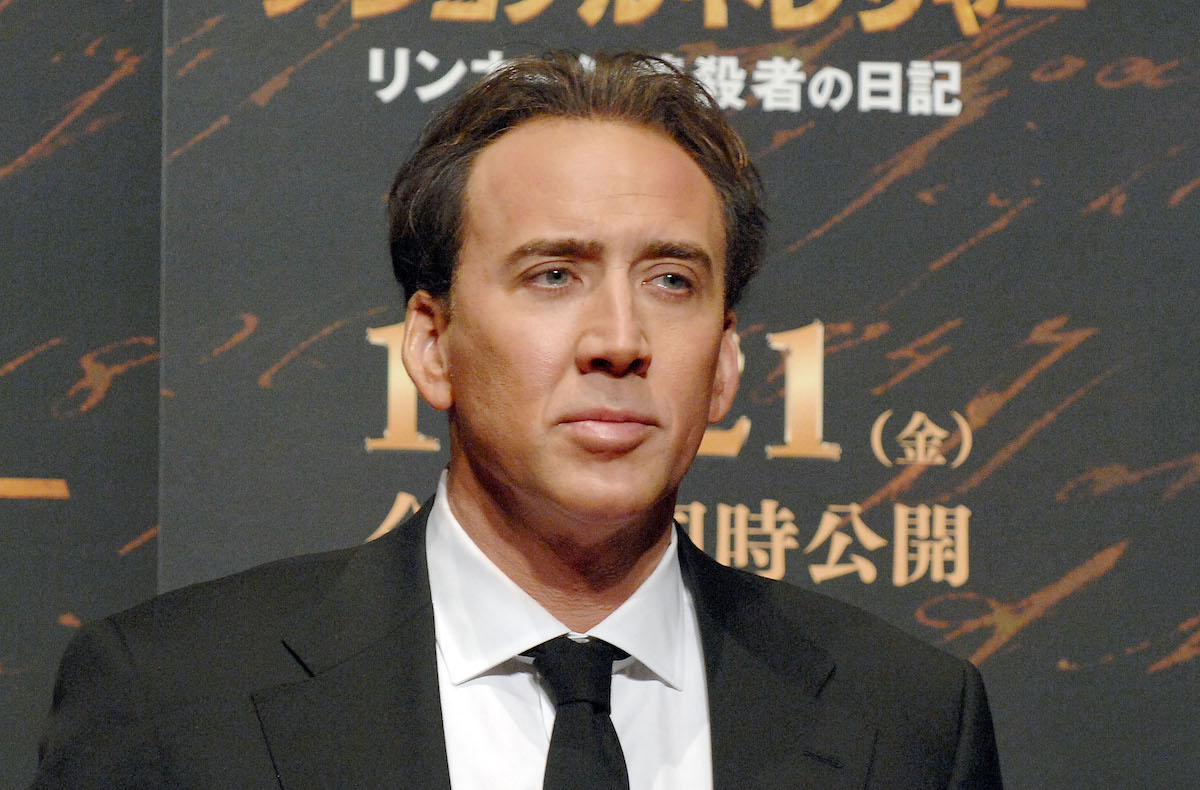
Nicolas Cage Lost $276,000 on a Stolen Dinosaur Skull Leonardo DiCaprio Wanted
Nicolas Cage is a one-of-a-kind celebrity. The actor transcended the legacy of his famous family to become an artist firmly in his own lane. He’s magnetic and interesting regardless of whether the movie he lends his talent to is a critically acclaimed project, a buzz-worthy indie picture, or a schlocky action movie. No actor has lived as many lives as Cage has. The rollercoaster nature of the second half of his career is impossible to untangle from his financial issues.
Cage was clearly in a difficult place for a long time because of his struggles. But the road to near-ruin is paved with stories so absurd you can’t help but enjoy reading about them. Case in point: Cage lost hundreds of thousands of dollars as a result of a bidding war over a dinosaur skull with Leonardo DiCaprio.
Nicolas Cage learned the hard way that Mongolian dinosaur skulls are a dangerous investment
The fame and success Cage has earned allowed him to traverse down the strangest rabbit holes only available to the rich. In 2007, the actor spent $276,000 on a Tyrannosaurus bataar skull. He beat out DiCaprio, from a Beverly Hills gallery I.M. Chait. Seven years later, the Department of Homeland Security told Cage the skull was taken from its native Mongolia illegally. It turned out that the gallery purchased the skull, among other skeletons, from Eric Prokopi, a Florida man turned black market paleontologist.
Prokopi received charges of conspiracy to smuggle illegal goods, possessing stolen property, making false statements, smuggling goods into the U.S., and interstate sale and receipt of stolen goods for smuggling bones from Mongolia and China into the U.S. As part of his plea bargain, he helped prosecutors retrieve over 17 fossils, including the skull.
Cage never received accusations of any wrongdoing. He gave up the skull voluntarily after learning about the context. But the National Treasure star still took a sizable chunk out of his bank account. In an episode of GQ’s Actually Me video series, Cage explained that he was never compensated for returning the fossil.
“There’s this skull I bought at an auction and I bought it legally,” he says. “Here’s the MacGuffin. When the Mongolian government said that they needed it back. I gave it to ’em, but I never got my money back. So somebody at the auction house should be in jail.”
The situation is indicative of how extravagant Cage’s spending was at the time. At the height of Cage’s commercial power, he had a $150 million fortune and was earning $20 million for his biggest movies. But a few years of financial mismanagement left him on the brink of financial ruin.
As easy as it would be to point to the whole dinosaur skull fiasco as a reason why he lost most of his money, the truth, as Cage explained in a recent cover story also for GQ, is more banal than that.
Nicolas Cage nearly lost all of his money after a series of unfortunate investments

He was just as affected by the 2008 real estate crash as people with regular jobs. Cage owned several exotic locales in North and Central America: the LaLaurie mansion, also known as the “Most Haunted House in America” in New Orleans, the 16th-century Schloss Neidstein in Germany, the 18th-century Midford Castle in England, the Gray Craig estate in Rhode Island, and Leaf Cay island in the Bahamas. When the bubble burst, he didn’t have anywhere to go.
“I didn’t believe in stocks because I think they’re like gambling and they’re dangerous, but you can dump a stock,” Cage said. “You can’t get out of real estate that quickly.”
To make matters worse, he sued his business manager, Samuel J. Levin, for negligence and fraud in 2009. Levin then countersued, claiming that Cage’s recklessness couldn’t be stopped. The fiasco ended with the actor owing the IRS $14 million in addition to significant fees to other creditors.
This happened to coincide with a fallow period in Cage’s career. So without a box office hit in recent memory, he had to make whatever straight-to-VOD tripe just to make a dent in his debt. There were also family problems affecting his life at home. His father, August Coppola, also passed away in 2009, leaving him to care for his mother while his career was cratering.
“I’ve got all these creditors and the IRS and I’m spending $20,000 a month trying to keep my mother out of a mental institution, and I can’t,” Cage recalled. “It was just all happening at once.” A few years later, he would divorce his third wife, Alice Kim, after 12 years of marriage, get married again in Vegas before annulling it four days later, and get recorded during multiple incidents of public drunkenness.
As bad as things got, Cage never filed for bankruptcy. He continued to slowly work his way out of a deep hole. Many of the movies in this era are barely worth watching even for dedicated stans. But there were enough legitimately great performances to remind viewers that Nicolas Cage is one of the best actors alive. He finally paid off his debts around the end of 2020.
How Cage made his millions
There’s no avoiding the fact that Cage’s background as a Coppola gave him a level of financial security that most young artists never have. But he forges his own path as a performer. 1987 was his breakthrough year, as he starred in the Coen Brothers’ Raising Arizona and Moonstruck alongside Cher.
Most of his signature roles display his incredible level of expressiveness that borders on unhinged. It’s why so many of his roles have become natural meme generators. Cage is willing to experiment and risk looking silly in a way that his rare. Wild at Heart, Face/Off, Bad Lieutenant: Port of Call New Orleans, and Adaptation are the best examples of this approach.
But Cage also has the capacity to tone it down in a way that feels genuine in movies like Leaving Las Vegas or Bringing Out the Dead. That same range is apparent in two of his best performances in this last period, the psychedelic horror movie Mandy and Pig, where he plays a lonely chef whose search for a truffle pig teaches him a profound lesson about how life should be lived.
The Unbearable Weight of Massive Talent is a victory lap after a tough decade. Cage has recovered financially (his current net worth is about $25 million, according to Celebrity Net Worth) and artistically and remains someone worth watching in movies.


